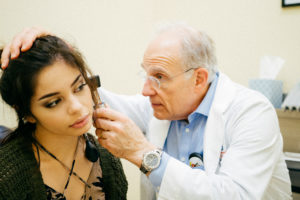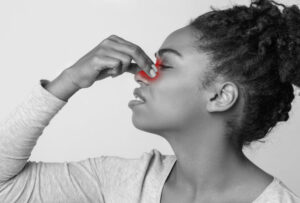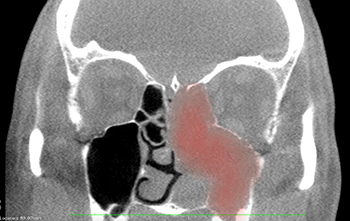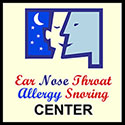About Us
Our Mission
We are privileged to provide services that significantly improve our patient’s quality of life. Our mission for each patient is to understand their condition and provide them with the most appropriate intervention that addresses all of their symptoms. For some this will require a procedure, and as an experienced and well-trained sinus surgeon, Dr. Douglis will provide state-of-the-art care that is safe and effective. We enjoy educating patients about their conditions and how they can benefit from various therapies and procedures. We are always accessible, and want every patient to feel that they are striving together towards better health and relief from their symptoms.
When should you see an ENT
 ENT doctors, or “otolaryngologists”, have specialized knowledge about the ear, nose, and throat area. Their study and experience has provided them with particular expertise in this area of the body.
ENT doctors, or “otolaryngologists”, have specialized knowledge about the ear, nose, and throat area. Their study and experience has provided them with particular expertise in this area of the body.
Visiting your family doctor or primary care physician is typically the first choice for most illnesses. But the deep expertise of a board-certified ENT specialist is called for if your family doctor is unsure of the cause of your symptoms or how to best treat them.
You should also consult an ENT if your ear, nose or throat-related symptoms don’t disappear with first-line treatment, or recur often.
ENT specialists serve patients of every age–from infants to the elderly. They treat infections, cancer, and other disorders of the ear, nose, and throat. When necessary, they perform surgery such as removing tonsils and/or adenoids– a common procedure in children. The ENT specialists at the ENT Allergy Snoring Center also diagnose and treat allergies and sleep disorders such as sleep apnea.
We have the expertise to treat the following conditions:
SINUSITIS

Patients with recurring acute sinus infections and chronic sinusitis have bothersome symptoms such as nasal congestion, sinus pressure and pain, nasal drainage, smell dysfunction, and much more. Everyone is different, and this is particularly applicable in sinusitis. Expertise in the many treatment options available ensures that patients get the right treatment the first time as well as ongoing care to manage underlying conditions such as allergies and immune system problems.
NASAL OBSTRUCTION
 Impaired nasal breathing impacts everything from quality of sleep to exercise tolerance. Causes range from enlarged turbinates (often due to allergies or overuse of nasal decongestant sprays), deviated nasal septum, nasal polyps, or even tumors within the nasal cavities or sinuses. Diagnosing the underlying cause involves imaging (often a quick in-office CT of the sinuses and nasal cavities) and in certain cases nasal endoscopy to investigate the exact cause of obstruction. We have expertise in treating nasal obstruction, including septoplasty, turbinoplasty, polyp removal, and even sinus and nasal tumor removal.
Impaired nasal breathing impacts everything from quality of sleep to exercise tolerance. Causes range from enlarged turbinates (often due to allergies or overuse of nasal decongestant sprays), deviated nasal septum, nasal polyps, or even tumors within the nasal cavities or sinuses. Diagnosing the underlying cause involves imaging (often a quick in-office CT of the sinuses and nasal cavities) and in certain cases nasal endoscopy to investigate the exact cause of obstruction. We have expertise in treating nasal obstruction, including septoplasty, turbinoplasty, polyp removal, and even sinus and nasal tumor removal.
OTHER ASPECTS OF RHINOLOGY
 While sinus and nasal obstruction complaints comprise the vast majority of patients in a Rhinology practice, there are many less common conditions.
While sinus and nasal obstruction complaints comprise the vast majority of patients in a Rhinology practice, there are many less common conditions.
These include:
– Epiphora (chronic eye tearing) caused by nasolacrimal duct obstruction
– Epistaxis (nosebleeds)
– Anosmia (smell loss) or reduced sense of smell
– Chronic nasal drainage or postnasal drip
– Cerebrospinal fluid (CSF) leaks into the nose and sinuses
– Tumors of the nasal cavities and sinuses
– Intracranial pathology in collaboration with Neurosurgery (ex. pituitary neoplasms)
